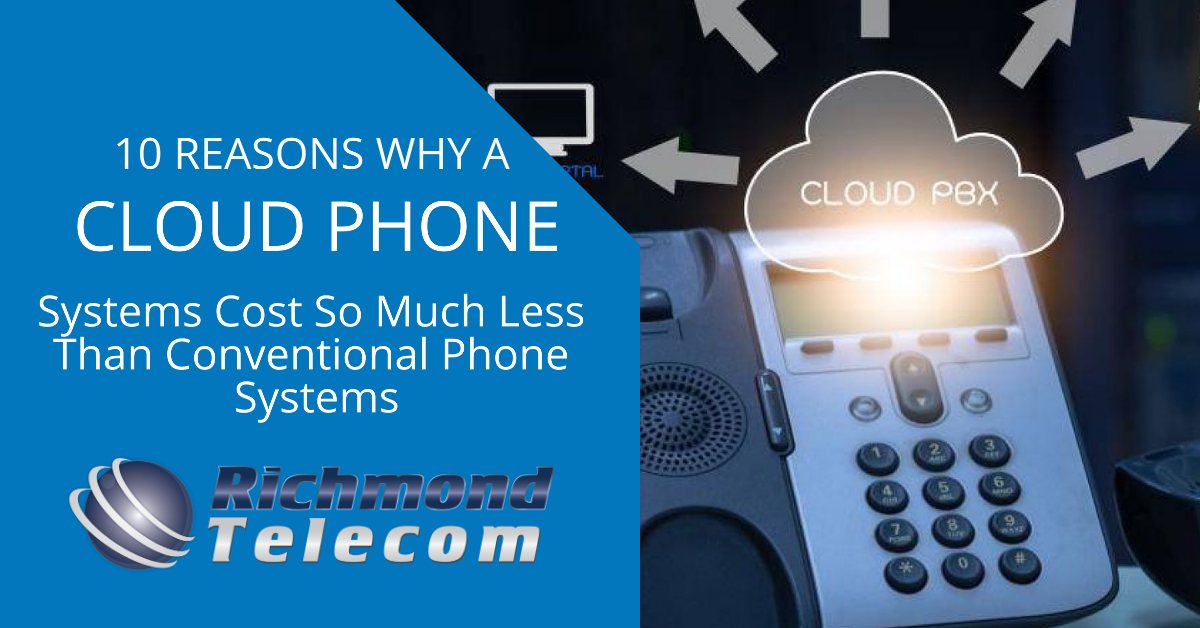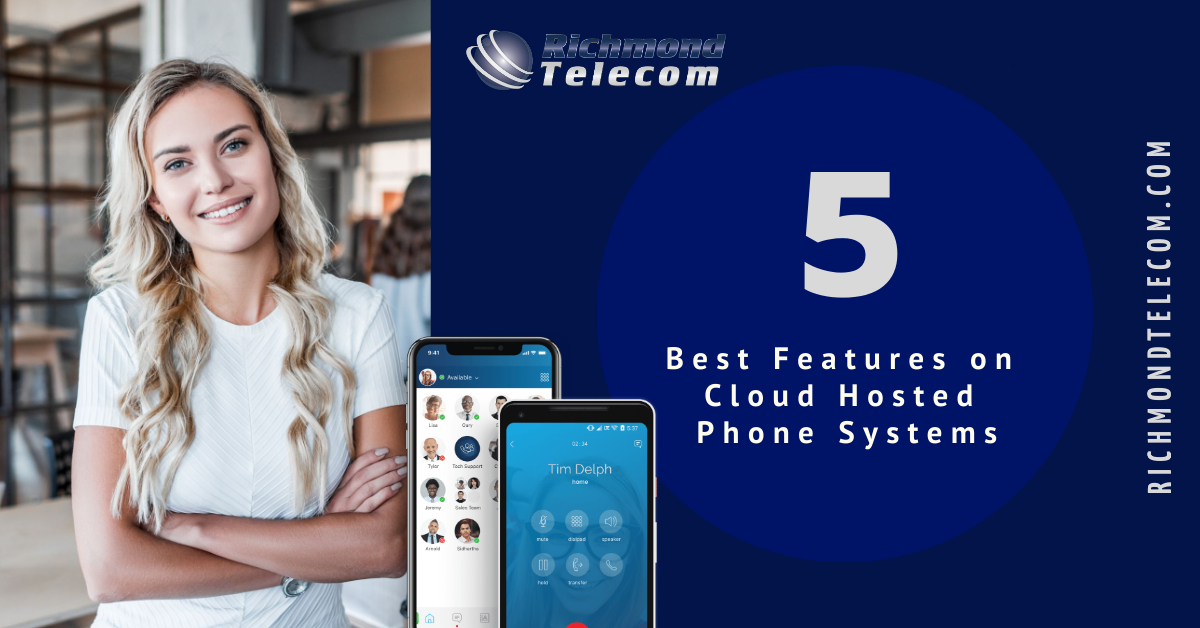Though we’d rather not admit it, we’ve all suffered the misery of purchasing something that was so inexpensive that it seemed too good to be true — but we went ahead and bought it anyway, only to discover that the little voice in our head was 100% right.
For example, how many of us have bought an ultra cheap toaster, only to have it break down in a matter of months, weeks — or sometimes even days?
However, sometimes when we’re faced with a surprisingly low price for something, it’s actually NOT too good to be true. And one of the best examples of this is a cloud telephone system. Here are the 10 key reasons why:
- With a cloud phone system, there is no expensive on-site Private Branch Exchange (PBX) system to purchase, along with one or more servers and interface cards. All that organizations need to purchase is IP phones, a managed router, and (if necessary) a network switch.
- With a cloud phone system, there is no need to purchase and maintain a separate IT infrastructure for telecommunications. This is because all voice and unified communication functions (e.g. instant messaging, video conferencing, etc.) run on an organization’s existing data network, which is already being used to transfer files, send/receive emails, connect to the web, and so on.
- With a cloud phone system, there are no domestic long distance costs — which can save organizations anywhere from $20/month to over $100/month.
- With a cloud phone system, all technical support, maintenance and ongoing upgrades (e.g. security patches, innovations, etc.) are handled by the VoIP Solutions Provider. There is no need for organizations to hire in-house VoIP specialists, or burden their (already exhausted) IT team.
- Because a cloud phone system uses an off-site PBX, organizations reduce their electricity consumption — and hence their utility bill. They also free up usable office space that would otherwise be required to house an on-site PBX system and associated hardware.
- Unlike a conventional phone system, a cloud phone system doesn’t count every single employee as a user. Instead, what matters is how many open lines (a.k.a. seats) an organization needs. This is substantially cheaper for organizations that have a large workforce, but either don’t need to give everyone their own dedicated phone line, or typically only have a small number of employees making/receiving calls at the same time.
- Conventional phone carriers are notorious for increasing fees. With a cloud phone system, the price in the contract is the price that organizations pay — guaranteed.
- When a conventional phone system reaches its end-of-life or full capacity, replacing it can cost hundreds of thousands of dollars. With a cloud phone system, this is a non-issue. The system never needs to be replaced, and scaling up (i.e. adding more seats) is affordable, takes a matter of seconds, and can be done from anywhere through a web-based portal.
- Expanding a cloud phone system to new locations is remarkably simple and 100% free: organizations simply unplug their IP phones, and plug them back in at the new location. This is not the case with a conventional phone system, which comes with a hefty MAC (move, add, change) costs.
- With a cloud phone system, organizations can stay connected with remote workers through a free mobile app. This is simply not an option for a conventional phone system at any cost.
The Bottom Line
Alas, some things in life are too good to be true. But some things in life are less expensive for rational and verifiable reasons. A cloud phone system clearly falls in this category, which is why so many organizations have made the switch.




